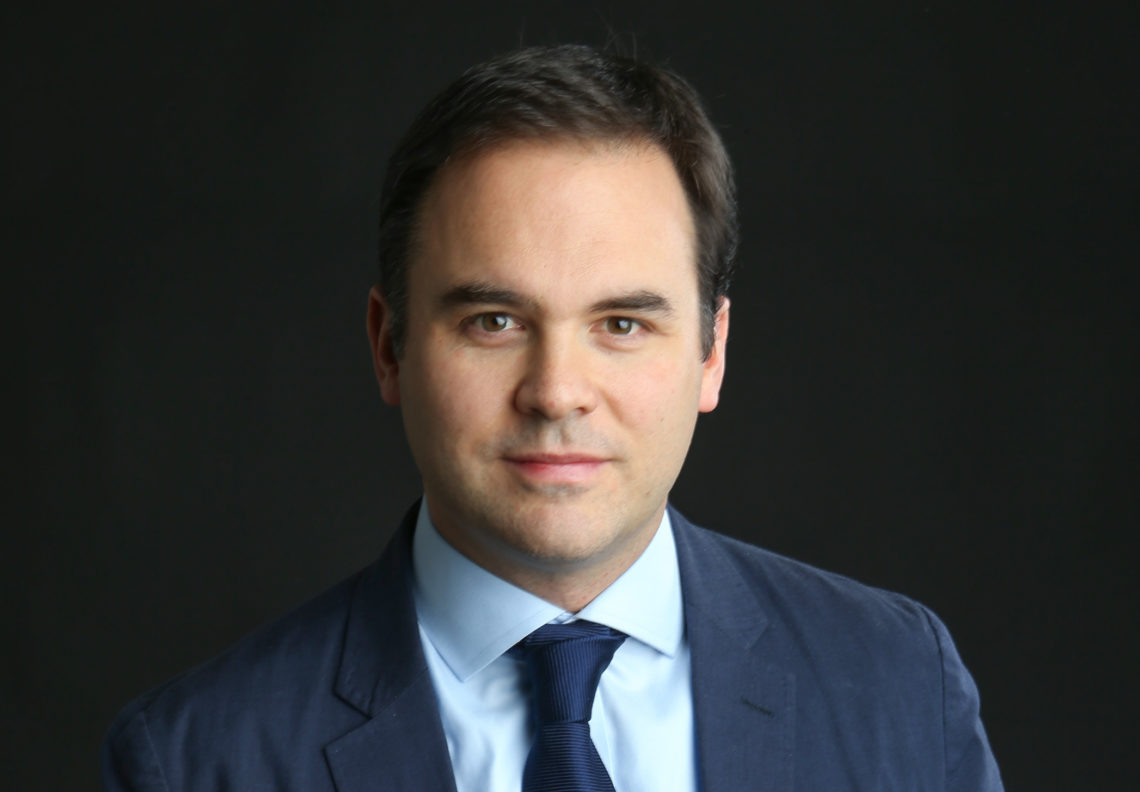
If any journalist can attest to the value of digging into surprising finds or leveraging even the most tenuous connections, it’s The New York Times’ David Gelles. That kind of tenacity got the reporter and columnist a Page 1 credit in the Times when he was five weeks into journalism school and, several years later, an exclusive jailhouse interview with Bernie Madoff, the Wall Street financier behind the largest Ponzi scheme in history.
A 2008 alum of the J-School, Gelles primarily covers business for the Times and writes its Corner Office column. He’s also the author of the 2015 book, Mindful Work: How Meditation is Changing Business from the Inside Out.
Gelles was born in New York City and grew up mostly in the Bay Area. Journalism wasn’t really on his radar at Boston University, and it wasn’t until his mid-20s, working at a Washington, D.C., design firm, that it clicked. On lunch breaks and after work, he found himself “hustling just trying to land freelance pieces in tiny local papers.”
“And after a couple years of that,” he said, “I realized maybe I got to do something about this.”
That meant applying to Berkeley J-School—for the second time. Gelles said he had entirely forgotten giving it a shot straight out of B.U., but he was waitlisted and advised to grab a couple years’ professional experience before trying again. “Even though I forgot the advice,” he said, “I guess I took it to heart.”
Gelles landed in Professor Lydia Chavez’ J200 reporting class, where “she very swiftly whipped me into shape.” Chief among her lessons was report, report, report, and he quickly found himself hustling for outside bylines the way he had in D.C.
“I always felt that David was about the story—doing a good job on it and taking care in writing it up,” Chavez recalled in an email.
That mindset quickly paid off in a huge way.
“It was the height of the insurgency in Iraq, and I’m on YouTube in the middle of the night one night, just like surfing videos,” Gelles recalled. “I come across this trove of jihadist videos that depict American soldiers getting IED’d and sniped, set to, like, you know, al-Qaeda recruiting music, with all the logos and stuff. And I freak out and I start documenting it all.”
Gelles spent the week hammering out and shoring up the story with classmate and new friend Omar Fekeiki (‘08), who had been an Iraqi translator for The Washington Post in Baghdad.
“He never asked me to contact the [New York] Times,” Chavez, herself a former Times bureau chief, said. “I did it on my own. It was one of the rare occasions that I called the Times on a student story.”
Gelles knew that kind of success wasn’t typical of a first-semester student, “yet it was just one of those affirming life experiences that sort of tells you you’re doing what you’re supposed to be doing.”
Gelles’ interest in business reporting was also sparked at North Gate Hall, by instructor Marcia Parker. Business stories were more than just numbers, but about real people—a lesson he has woven into his own reporting.
After a stint covering small business at The Miami Herald, Gelles hit the tech beat at The Financial Times in San Francisco, before hopping east to New York to cover media. From there, he moved into the technical world of mergers and acquisitions—a beat so fast-paced, he once earned seven bylines in a single day.
Gelles was at The Financial Times when Bernie Madoff was arrested. Almost immediately after, the reporter happened to find out that a friend of a friend of a friend “had an in with the Madoff family.” With no expectation it would reach Madoff, Gelles passed along a message: “‘Tell him, that if he ever talks to someone, talk to me.’”
Two years later, an email appeared in his inbox from Madoff, by then behind bars. For six months, they corresponded. His application to visit Madoff was rejected twice by the prison before it was approved. “It was not a layup,” Gelles said. “It took a combination of luck and persistence and persuasion on my part.”
Finally, in 2011, he and FT managing editor Gillian Tett had their two hours with Madoff. Gelles’ takeaway? “As far as I can tell he’s a sociopath, in that he just doesn’t feel empathy.”
But it proved a key lesson for all journalists: “putting out those feelers and just asking for connections—implausible as they might seem—you gotta do it,” Gelles said, chuckling. “Because sometimes the fish bites, as it were.”
Around that time, he also had the opportunity to merge a big part of his personal life—meditation—into his career when he wrote a story about companies that practice meditation in the office. It was the first step toward Mindful Work, which examines businesses that employ mindfulness practices and the benefits of those practices for workers.
Gelles continues to cover business at The New York Times, where he has been since 2013. In February, he took over the Corner Office column, where he interviews business leaders. The defining story of our times, he says, is the many “uncomfortable and provocative and sometimes beneficial” ways business and social issues are mashing into each other.
“The separation between the business world and the culture wars, politics—the left–right divide—it’s just gone,” he said.
Chavez said she has enjoyed following Gelles’ trajectory.
“He is generous in his praise, but also just really enthusiastic about what he does and has a fair amount of humility to boot,” she said. “It is easy to see him developing sources—he’s truly interested in what others have to say. There’s not a lazy bone in his body.”
By Sam Goldman (’19)
